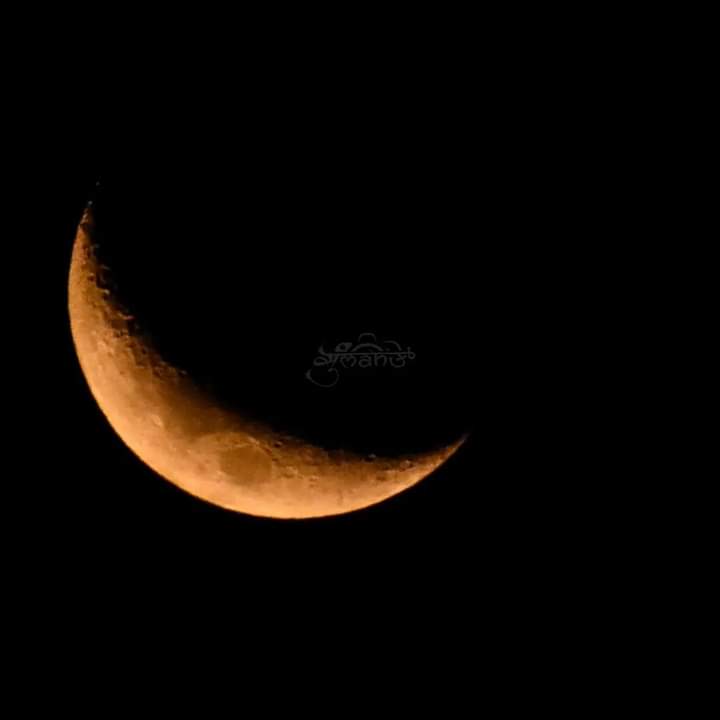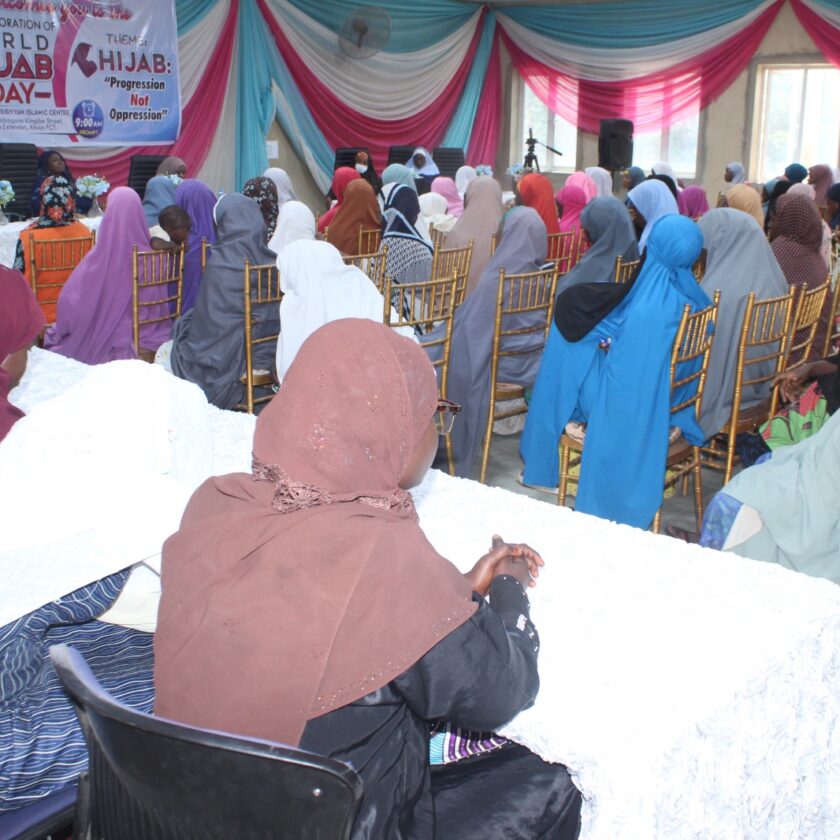In The Name of Allah, The Most Merciful, The Bestower of Mercy
All praise is due to Allah, the Lord of all creation—may He extol the Messenger in the highest company of Angels and send His peace and blessings upon him—likewise upon his family, Companions, and true followers.
Dear brothers and sisters! Rajab (Arabic: رَجَب) is the seventh month of the Islamic calendar. The lexical definition of the classical Arabic verb rajaba is “to respect” which could also mean “be awe or be in fear”, of which Rajab is a derivative.
This month is regarded as one of the four sacred months (including Muharram, Dhul-Qa’adah and Dhul-Hijjah) in Islam in which battles are prohibited. The pre-Islamic Arabs also considered warfare blasphemous during the four months.
The months of Rajab and Shaʿaban are a prelude to the Noble month of Ramadan.
The word “Rajab” came from “rajub (رجوب)”, the sense of veneration or glorification, and Rajab was also formerly called “Mudar” because the tribe of Mudar did not change it but rather expected in its time other than the rest of the Arabs, who changed and altered in the months according to the state of war.
The name of Rajab literally means respected, regarded, and admired. It seems that the word is originally a Semitic one.
There are other names for the month, such as Rajab Al-Morrajjab, Rajab Al-Asab and Rajab Sharif.
Respected servants of Allah! The Islamic months, calculated according to the moon’s movements, adhere to the lunar calendar. The lunar calendar ends, approximately 11 days prior to the solar year. Hence, every Muslim will experience the sacred months, performing Hajj, and the month of Ramadan, fasting, in different periods and seasons, during a 33-year life span. The seventh month to occur in the Islamic calendar is the month of Rajab, which falls between the months of Jumadah and Sha’aban. Rajab endorsed, and the first to appear, is one of the four Sacred and Blessed months in Islam:
“Verily, the number of months with Allah is twelve months [in a year], so was it ordained by Allah on the Day when He created the heavens and the earth; of them, four are Sacred [i.e., the 1st, the 7th, the 11th and the 12th months of the Islamic calendar]. That is the right religion, so wrong, not yourselves therein.” [Qur’an, Surah Al-Tawbah, Verse 36]
The word of Allah Almighty, the Qur’an, mentions the four Sacred months through connotation, although not mentioned by name. However, the Sunnah does mention the names of these months. Prophet Muhammad (Peace be upon him) final sermon recollects with the utmost of importance, consequentially Abu Bakr (RA), voiced Prophet Muhammad’s (Peace be upon him) exhortation in the following Hadiths:
“Time has completed its cycle and is as it was on the Day when Allah created the heavens and the earth. The year is twelve months, of which four are sacred, three consecutive months – Dhul-Qa’adah, Dhul-Hijjah, and Muharram, and the Rajab of Mudar which comes between Jumadah and Sha’aban.” [Al-Bukhari and Muslim]
Expectations during the Sacred months from Muslims are acknowledged and fundamental. The Qur’anic verse in Surah Al-Baqarah, verse 217, prohibits initiating a war during these months implicitly commanding it is strictly forbidden. However, existing war’s can continue and in defence, if it is necessary to defend oneself, their tribe or Muslims. Allah the Most High says:
“They ask you about the sacred month – about fighting therein. Say, “Fighting therein is great [sin], but averting [people] from the way of Allah and disbelief in Him and [preventing access to] al-Masjid al-Haram and the expulsion of its people therefrom are greater [evil] in the sight of Allah. And fitnah is greater than killing.” And they will continue to fight you until they turn you back from your religion if they are able. And whoever of you reverts from his religion [to disbelief] and dies while he is a disbeliever – for those, their deeds have become worthless in this world and the Hereafter, and those are the companions of the Fire; they will abide therein eternally.” [Qur’an, Surah Al-Baqarah, Verse 217]
Sinning is prohibited in any month of the year, but the punishment for intentionally or otherwise sinning during the four Sacred months multiplies, as is the reward for good deeds. Committing sins is detrimental to our very being. When the Almighty Allah eulogises our deeds, they become inviolable. Thus, when glorified from two angles of more then, they become indestructible from multiple angles, except with the power of Du’a. The following verse is one indication of how rewards and punishments can multiply:
“The example of those who spend their wealth in the way of Allah is like a seed [of grain] which grows seven spikes; in each spike is a hundred grains. And Allah multiplies [His reward] for whom He wills. And Allah is all-Encompassing and Knowing.” [Qur’an, Surah Al-Baqarah, Verse 261]
• Preparation for Ramadan
Its recorded in Baihaqi, at the start of this month, Prophet Muhammad (Peace be upon him) would pray:
“O Allah, favour us with the blessings of Rajab and Sha’aban and take us to the Noble month of Ramadan.” [Baihaqi]
Prophet Muhammad (Peace be upon him) spent the months of Rajab and Sha’aban preparing for the blessed month of Ramadan. Classical Muslim scholar Ibn Rajab Al-Hanbali quoted another scholar, Abu Bakr Al-Warragin in his book Lata’if Al-Ma’arif:
“Rajab is a month of cultivation, Sha’aban is the month of irrigating the fields, and Ramadan is the month of reaping and harvesting.”
Dear brothers and sisters! As we prepare for Ramadan, first and foremost we must repent, asking Allah, Al-Ghafur, The Forgiver to forgive us, and guide us to mentally, physically and spiritually strengthen our commitment to Islam. Anas Ibn Malik reported that: The Prophet (Peace be upon him) said:
“All of the children of Adam are sinners, and the best sinners are those who repent.” [Sunan al-Tirmidhi]
Dutifully and attentively, we must perform our compulsory prayers and increase our discretionary prayers during the Sacred month of Rajab. In Sha’aban, follow the Sunnah of the Prophet Muhammad (Peace be upon him), leading us to enforce both Fard and Sunnah during Ramadan.
It has also been narrated by Abu Nu’aim in his famous and great book, ‘Hilyatul-Auliyah’ from Anas Ibn Malik (RA), that the Prophet of Allah (Peace be upon him) welcomed the month of Rajab by making the following Du’a:
“Oh Allah, bless us in Rajab and Sha’aban and let us reach Ramadan.”
• The Isra’ and Mi’raj
Respected brothers and sisters! It was during this month, Allah Almighty conferred on Prophet Muhammad (Peace be upon him), the great honour of ascending to the heavens. Allah the Most High says:
“Exalted is He who took His Servant [Prophet Muhammad] by night from Al-Masjid Al-Haram to Al-Masjid Al-Aqsa, whose surrounding We have blessed, to show him of Our signs. Indeed, He is the Hearing, the Seeing.” [Qur’an, Surah Al-Isra, Verse 1]
This honour had never been ascribed to any other Prophet than the Prophet Muhammad (Peace be upon him). He (Peace be upon him) made a journey with his physical being from the sacred city of Makkah to Jerusalem and, from there he ascended through the seven heavens to a place so near to the Divine Court that not even an angel, far less a human being, could have access. After having reached the Sidratul-Muntaha even Angel Jibril (AS), the head of the angels expressed his inability to proceed beyond this point. The five daily prayers became obligatory on all Muslims following this night of ascent.
Beloved servants of Allah! Shaʽaban (Arabic: شَعْبَان) is the eighth month of the Islamic calendar. It is the month of “separation”, so called because the pagan Arabs used to disperse in search of water.
Sha’aban is the last lunar month before Ramadan, and so Muslims determine in it when the first day of Ramadan fasting will be.
The virtues of Sha’aban is mentioned in various Hadiths of the Prophet Muhammad (Peace be upon him). Aisha, the wife of Prophet, narrated that:
“(She) did not see him fasting in any month more than in the month of Sha’aban, except Ramadan.”
In another narration the Prophet Muhammad (Peace be upon him) said:
“Do those deeds which you can do easily, as Allah will not get tired (of giving rewards) till you get bored and tired (of performing religious deeds).”
The Islamic calendar is a lunar calendar, and months begin when the first crescent of a new moon is sighted.
Sha’aban, the eighth month of Islam’s Hijrah or lunar calendar, and the month that precedes the Noble month of Ramadan was the most beloved month to Prophet Mohammed (Peace be upon him).
Sha’aban is significant for many reasons. First, it is the time that Muslims start getting ready for the month of Ramadan.
It was in the middle of the month of Sha’aban when Muslims believe that Allah ordered Prophet Muhammad to change the Qiblah, the direction towards which Muslims face when they pray, from Al-Aqsa Mosque in Jerusalem to the Noble Ka’abah in Makkah.
Al-Aqsa Mosque had been the Qiblah for thirteen years in Makkah, and for nearly eighteen months after Prophet Muhammad migrated to Madinah.
Verses from the Qur’an were revealed to Prophet Muhammad (Peace be upon him), instructing him and all Muslims to turn towards the Ka’abah in Makkah when they pray. Most interpretations date this incident to the middle of the month of Sha’aban.
The Hadiths of Prophet Muhammad (Peace be upon him) show that it is recommended to fast during Sha’aban.
Well-known companion of the Prophet, Anas Bin Malik reported that Prophet Muhammad (Peace be upon him) was asked:
“Which fast is the most meritorious after the fasting of Ramadan?”
Prophet Muhammad (Peace be upon him) replied:
“Fasting of Sha’aban in honour of Ramadan.”
Fasting in Sha’aban is like mental and physical training for fasting in Ramadan. Many Muslims may experience difficulty when they start the fast in Ramadan, but if they started fasting a few days in Sha’aban, their bodies may get used to fasting and not feel so lethargic and weak when Ramadan comes.
Sha’aban is like an introduction to Ramadan and it has some things in common with Ramadan, such as fasting, reciting Qur’an and giving to charity.
Aisha, the wife of Prophet Muhammad (Peace be upon him) is narrated to have said:
“The Messenger of Allah used to fast until we thought he would never break his fast, and not fast until we thought he would never fast. I never saw the Messenger of Allah fasting for an entire month except in Ramadan, and I never saw him fast more than he did in Sha’aban.”
The Prophet’s adopted son Usamah Ibn Zaid narrated that:
“I said to the Prophet,’ O Messenger of Allah! I did not see you fasting in any month as you do in the month of Sha’aban.’ The Prophet said, ‘People neglect this month which is between Rajab and Ramadan; in this month the actions of the people are presented to Allah, so I like my deeds to be presented while I am fasting.’”
Though fasting is made obligatory in Ramadan, Muslims believe fasting in Sha’aban is beneficial in a number of ways as it offers a chance to start preparing for Ramadan.
In Sha’aban, many Muslim scholars and others used to consistently recite and read the Noble Qur’an along with fasting, which also helps in getting our routines of worship in place for the coming month of Ramadan.
Muslims believe that if they begin increasing acts of worship in Sha’aban, they will enjoy the fruits of their efforts in the Noble month of Ramadan.
I end my today’s sermon by saying: all praise is due to Allah, the Lord of all creation; may Allah extol the mention of our noble Prophet Muhammad in the highest company of Angels, bless him and give him peace and security―and his family, his Companions and all those who follow him correctly and sincerely until the establishment of the Hour.
I ask Allah, the Most High to grant us success and enable us to be correct in what we say and write, ameen.
Murtadha Muhammad Gusau is the Chief Imam of Nagazi-Uvete Jumu’ah and the late Alhaji Abdur-Rahman Okene’s Mosques, Okene, Kogi State, Nigeria. He can be reached via: [email protected] or +2348038289761.
This Jumu’ah Khutbah (Friday sermon) was prepared for delivery today, Friday, Rajab 23, 1443 A.H. (February 25, 2022).





